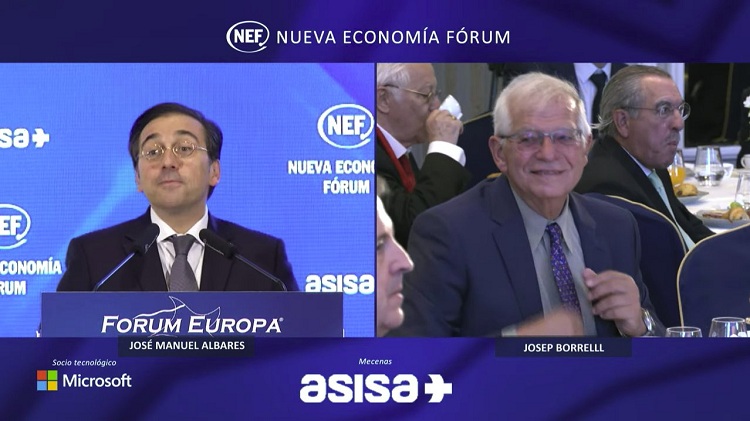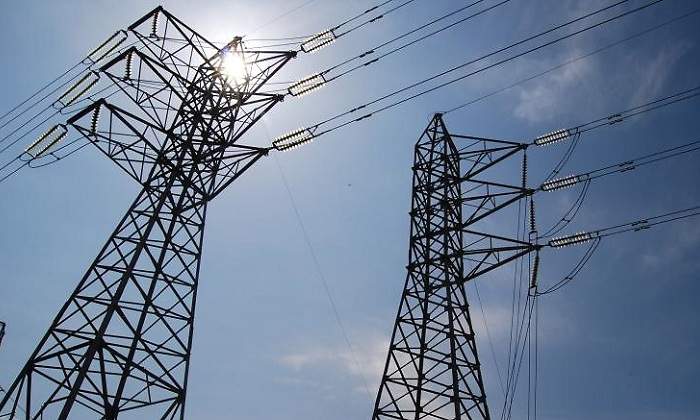Eduardo González
The Vice President of the European Commission and High Representative of the European Union for Foreign Affairs, Josep Borrell, yesterday defended Spanish and European policy in Nicaragua, Cuba and Venezuela in response to criticism from the United States, including the future US ambassador to Madrid, against Spain’s “mediocre” policy towards these countries.
The candidate of Joe Biden’s Administration for U.S. Ambassador to Madrid, Julissa Reynoso, appeared this week before the U.S. Senate, where she described as “mediocre” the policy developed by Spain in relation to countries such as Cuba, Venezuela or Nicaragua. “I was not aware of these statements and I must be very careful to comment on statements that I am not aware of myself,” said Borrell (Spanish Minister of Foreign Affairs during the first legislature of Pedro Sánchez) during a breakfast briefing organized by New Economy Forum and which was presented by the Minister of Foreign Affairs, José Manuel Albares.
In any case, Borrell did reject American criticism for the alleged “lack of clarity” of European policy towards these countries. “For God’s sake, I don’t know what else we have to do,” he said. “We are not a military power and we cannot do more than political action, but I don’t think we do less than the United States, on the contrary,” he continued, in express reference to the case of Nicaragua. As for Cuba, he recalled, it is “well known that the EU, not only Spain, votes every year in favor of not continuing with the blockade, including the countries of the East, which are very close to the United States”.
Regarding Venezuela, Borrell defended the EU decision to send an observer mission to the upcoming local elections in November. “We are no less eager than the Americans to change the current situation, but there are productive things and counterproductive things” and in elections in which “the entire opposition is going to present itself, including the supporters of Mr. (Juan) Guaidó, we have to accompany them,” he warned. Participation does not imply “legitimizing the Government” of Nicolás Maduro, “what would legitimize or delegitimize it would be the report of the Commission”, he warned.
The “lesson of Afghanistan”
On the other hand, Josep Borrell defended an EU foreign policy that does not depend solely on what the US or NATO say, because “to be an ally is not to be aligned”. To this end, he warned, it is necessary to create a “European defense pillar” that would not weaken NATO but would act in a “complementary” way with this organization.
An example of the need to overcome dependence on the United States in defense and security matters, he explained, is what happened in Afghanistan with the Taliban’s seizure of power last August, following the withdrawal of US troops and, by extension, of the rest of NATO’s allies. “President Joe Biden was not the one who decided on the withdrawal, it was (former President Donald) Trump,” he recalled. “Biden found himself with his plate served,” including Trump’s decision to “negotiate with the Taliban alone, without even counting on the Afghan government or Western allies,” he continued.
These negotiations weakened the Afghan Executive and led to the “collapse of the Afghan army in ten days without firing a shot, armed to the teeth by the United States but without combat feeling,” he lamented. Therefore, he warned, the “lesson learned from Afghanistan is very clear” and “is valid for the Sahel, Somalia and so many other places”: one cannot “impose democracy by invading”. Westerners have succeeded in eliminating Al Qaeda bases in the country, but have failed in creating “a different society”, and in the end “we have withdrawn the military after spending 300 million dollars every day for twenty years” because “the head of the expedition decided to leave, and the rest of us had to go with him”, he declared.
One consequence, he continued, has been the need to evacuate 500 people from the country, including Westerners and Afghan collaborators. “We needed visas from the member states, because the EU does not give visas, and if we have to wait for the visa bureaucrats, the 500 stay in Kabul,” he explained. In those circumstances, “Spain stepped up” and acted as a hub for the evacuations, Borrell recalled. “You put Spain on top,” he added, addressing Albares. “The EU has taken in 22,000 Afghans this summer,” but member states must “take in between 10,000 and 20,000 more people, at least,” including many Afghans, who “collaborated day by day to achieve that Afghanistan that we wanted to achieve and could not,” he warned.
Borrell also supported during his speech the Spanish government’s proposal for the joint purchase of natural gas by the EU states to deal with the escalating price of electricity because “negotiating gas jointly would give us much more negotiating strength with our suppliers”, especially Russia.
Albares
During the presentation of the event, José Manuel Albares assured that both the EU and the Spanish government were “up to the task” in Afghanistan, “cooperating very closely”. He also recalled that Madrid will host a NATO Summit in 2022 that will focus “on a new strategic concept” to “draw all the lessons from Afghanistan.” “Europe has to take its destiny into its own hands,” both in terms of defense and when analyzing “what its relationship with our natural ally, the United States, is going to be.” “Europe has to have a voice and a role in the world and has to be heard in all forums, including the Indo-Pacific,” he warned.
On the other hand, the minister affirmed that “no one better than a Spaniard at the head of the EU’s external action service to understand the importance of Latin America.” “There is no more Euro-compatible region in the world than Latin America and yet Europe normally lives with its back turned to the region,” he lamented.







